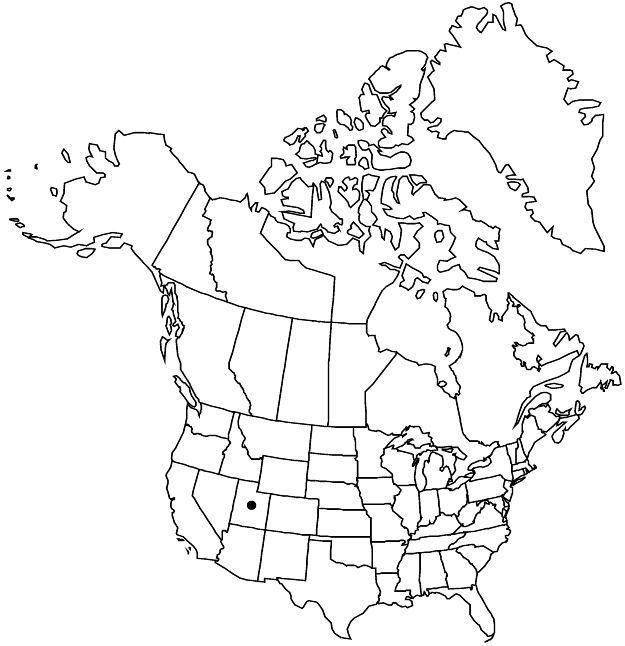Viola clauseniana
Madroño 4: 194. 1938.
Plants perennial, acaulescent, not stoloniferous, 3–20 cm; rhizome short, slender, fleshy. Leaves basal, 2–10, often prostrate, sometimes ascending; stipules narrowly lanceolate, margins faintly glandular-toothed, apex acute or obtuse; petiole 5–11 cm, glabrous; blade unlobed, ± deltate, 3–5 × 4–5 cm, base ± truncate, margins serrate, ciliate or eciliate, apex obtuse, surfaces usually glabrous, sometimes sparsely pubescent abaxially. Peduncles 8–14 cm, glabrous. Flowers: sepals lanceolate to ovate, margins eciliate or ciliate around auricles, auricles 1–2 mm; petals light violet on both surfaces, lower 3 purple-veined, all beardless, lowest petal 8–20 mm, spur white, gibbous, 2–3 mm; style head beardless; cleistogamous flowers on prostrate to ascending peduncles. Capsules oblong, 8–10 mm, glabrous. Seeds dark brown to black, 1.2–2 mm. 2n = 44.
Phenology: Flowering Apr–Jun.
Habitat: Hanging gardens, seeps, springs, shady areas
Elevation: 1600 m
Discussion
Of conservation concern.
Viola clauseniana is endemic to Zion National Park, Washington County. M. S. Baker reported that its seeds were minutely roughed, a characteristic not recorded for other Viola species. Viola clauseniana was originally thought to be closely related to the acaulescent blue violets, most notably V. nephrophylla (S. L. Welsh et al. 1987; L. E. McKinney 1992). After contemplating the 2n = 44 chromosome count obtained by J. Clausen (1964), H. E. Ballard (pers. comm.) suggested that V. clauseniana might be more closely related with the stemless white violets (for example, V. blanda) than with V. nephrophylla. Viola clauseniana was considered a distinct species by N. H. Holmgren (2005d) and T. Marcussen and T. Karlsson (2010).
Selected References
None.
